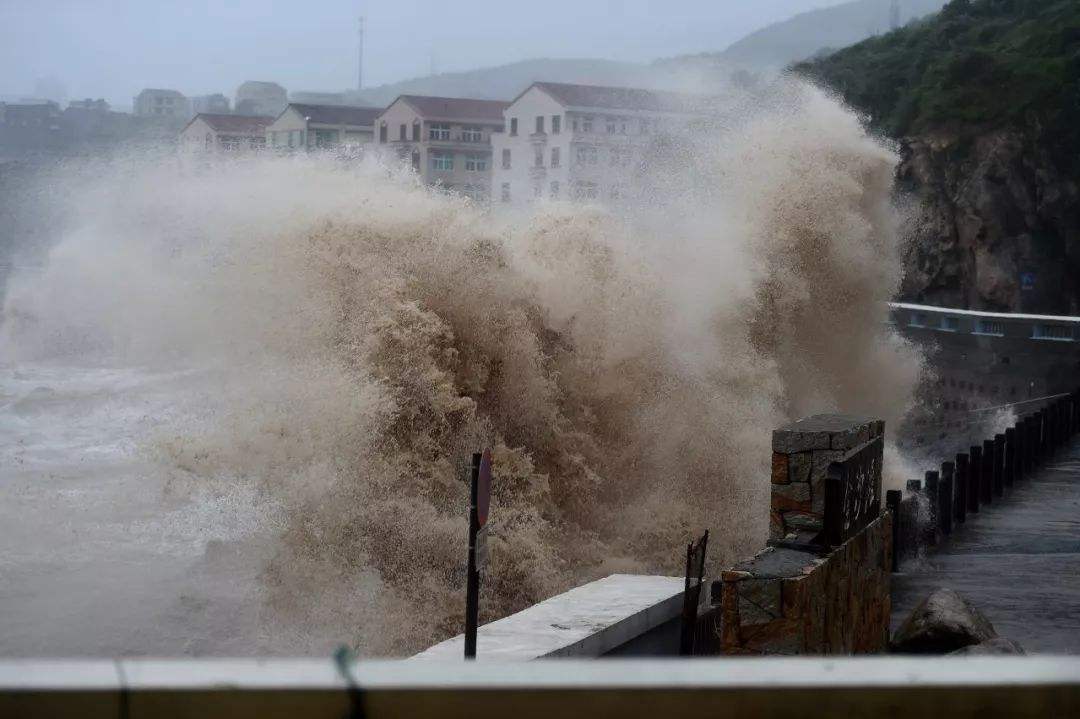Dialogue 1
Jingjing: Mark, have you been hearing about the typhoons this summer?
京晶:馬克,你聽說今年夏天那些臺風的事了嗎?
Mark: Yeah, I heard there have been 9 typhoons this year.
馬克:是的,我聽說今年有9次臺風。
Jingjing: It's a major year for storms. And the biggest one just hit China. It's called the Lekima.
京晶:今年風暴較為嚴重。最大一場剛剛襲擊了中國。它被命名為利奇馬。
Mark: Where did it make landfall?
馬克:它在哪里登陸的?
Jingjing: Mostly Zhejiang and Jiangsu. But it affected areas as far inland as Anhui. There were storms in Fujian to the south and Shandong to the north.
京晶:主要在浙江和江蘇。但它甚至也影響到了遠在安徽這樣的內陸地區。南方的福建和北方的山東都有暴風降雨。
Mark: Wow that's a huge area. Were people safe?
馬克:哇,這么大的范圍。人們都安全嗎?
Jingjing: Last I heard, the death toll was 44. Also, a large number of people are missing. More than a million people had to be evacuated.
京晶:我聽到的最新消息是死亡人數已達44人。此外,還有很多人失蹤。100多萬人被迫撤離。
Mark: That's a major storm system, to be sure. It must be terrible for families living near the coast.
馬克:毫無疑問,這是一個風暴系。對于住在海邊的家庭來說,一定很可怕。
Jingjing: More than 1,000 flights and train services have been cancelled.
京晶:超過1000多個航班和列車停運。
Mark: Wow, that's a lot of people stranded in airports and train stations.
馬克:不得了,那可有很多人被滯留在了機場和火車站。
Jingjing: The government issued a red alert and put more than 180 rescue teams on standby as well as 36,000 firefighters and 8,400 fire engines.
京晶:政府發布了紅色預警,調集了180多支救援隊、3.6萬名消防員和8400輛消防車待命。
Mark: It's good to have so many emergency workers ready to help. I saw pictures where a lot of streets were under water, and workers were using inflatable boats to rescue people.
馬克:有這么多急救人員隨時準備提供幫助,真是太好了。我看到那些照片,很多街道被水淹沒了,救援人員正在用充氣艇救人。
Jingjing: Right. The one inspiring thing at a time like this is so many people working together to help save lives.
京晶:對。像這樣在危急時刻如此多的人齊心協力挽救生命是一件鼓舞人心的事情。
Mark: Yes. There are a lot of inspiring stories from events like these. I'm sure the hard work done by rescue workers has kept thousands of people safe.
馬克:是啊。還有很多像這樣的感人事跡。我相信救援人員的辛勤工作保障了成千上萬群眾的安全。
Jingjing: More than a million if you count the people who were helped to evacuate.
京晶:算上被轉移疏散的人數那就有100多萬了。
Mark: Right. Is there still a red alert?
馬克:完全正確。現在還是紅色警報嗎?
Jingjing: It got downgraded soon after the typhoon hit the coast. Now it's mostly heavy rain, high winds, and all the work to find people and get things running again.
京晶:臺風登陸后不久就降級了。現在天氣主要是狂風暴雨,所有工作重心是搜救人員和恢復人們的正常生活。
Mark: Well, let's hope this is the last typhoon this year. Autumn is coming.
馬克:好吧,希望這是今年最后一次臺風了。秋天就要來了。
New words : 習語短語
make landfall 登陸
when a storm reaches the coast of a continent
inland 內地;內陸
land far away from the coast
death toll (事故、戰爭、災難等的)死亡人數
the number of people who have died in a disaster
evacuate 疏散,轉移,撤離
when people move quickly away from a disaster area, leaving their homes and most of their belongings
stranded
〔人或交通工具〕被滯留的;〔船〕擱淺的
stuck in a place where someone didn't plan to stay
red alert 紅色警報 緊急戒備狀態
a warning made by the government about a very severe disaster

Dialogue 2
Jingjing: So, Mark, do you know the difference between a typhoon and a hurricane?
京晶:那么,馬克,你知道臺風和颶風的區別嗎?
Mark: It's called something different depending on where it happens. Typhoons are in the northwestern Pacific Ocean, and Hurricanes are in the eastern Atlantic.
馬克:發生地點的不同因而命名不同。發生在西北太平洋的被稱為臺風,在東大西洋的叫颶風。
Jingjing: Right. Both of them are cyclones. Do you know how they are formed?
京晶:是的。它們都是熱帶氣旋。你知道他們怎么形成的嗎?
Mark: I know a little about them. You could probably tell me more.
馬克:我了解得不多。或許你可以再告訴我一些。
Jingjing: I remember reading that several conditions are necessary, and even then, a typhoon might not be formed.
京晶:我記得看到過,有幾個條件是必要的,但即使這樣,也不是一定就能形成臺風。
Mark: What are those conditions?
馬克:條件都有哪些?
Jingjing: High water temperature, high humidity, and a low pressure center, to name a few.
京晶:比如說,高水溫、高濕和低氣壓中心。
Mark: Wow, it must be hard to predict where and when a typhoon will form.
馬克:哇,預測臺風在何時何地形成一定很難。
Jingjing: Yes. They are created far out at sea. And even then it's hard to know where one will go or how strong it will be when it makes landfall.
京晶:是啊。它們在遙遠的海上形成。即使登陸時也很難知道它的具體路徑和強度。
Mark: Wow. People don't know until the last minute how much they should prepare for the storm. What are some good ways to be prepared?
馬克:人們直到最后一刻才知道應該為暴風雨做多少準備。預防臺風的辦法都有哪些?
Jingjing: I think it's good for people to keep a bag of emergency supplies ready at home.
京晶:我認為人們最好在家里常備一個應急包。
Mark: What should go in that bag?
馬克:應急包里面應該裝什么?
Jingjing: It should include a first aid kit, and some high energy food like nuts, as well as a few bottles of drinking water.
京晶:它應該包括一個急救箱,一些高能量食物,比如堅果類,還得有幾瓶飲用水。
Mark: That and a few sets of lightweight clothes and every family is ready to go camping.
馬克:再備上幾套輕便的衣服,每個家庭都準備好可以戶外露營了。
Jingjing: Well, if someone has to evacuate, it's good just to grab one bag and go quickly.
京晶:是的,如果不得不撤離,只要帶上這個應急包然后迅速離開就好了。
New words : 習語短語
cyclone 氣旋;颶風
a circular storm with inward spiraling winds that rotate around a center of low pressure
humidity 濕度 濕熱
the amount of water vapor in the air
first aid kit 急救包[箱]
a small bag or box with medical supplies including bandages and medicine











